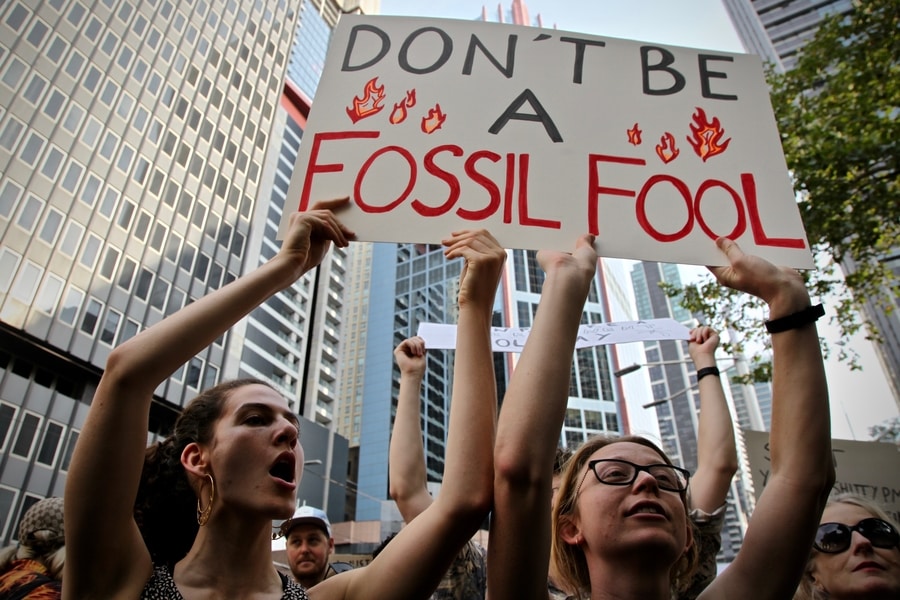Due to gender inequality climate change impacts women more significantly than men. We face an impending climate crisis. For women, this is aggravated by the existing patriarchal system. Ecofeminism provides a useful framework to show how elevating women can help achieve equitable sustainability and reduce emissions.
What is ecofeminism?
Ecofeminism uses the concept of gender to examine the relationship between humans and the natural world. Emerging in the 1970s, it asserts a feminist perspective of ecopolitics, calling for a collaborative society with no dominant group.
It is in particular concerned with addressing the parallels between environmental degradation and the oppression of women. According to environmental leader, Dr. Vandana Shiva, this connection stems from a common root of domination and the patriarchal-capitalist power source.
The problem with ecofeminism
Criticizing western notions of progress and the degradation of resources by industrial institutions, ecofeminism blamed the patriarchy for capitalism and overpopulation, assigning these male gender roles, while equating women with nature.
Ecofeminism was later dismissed as essentialist and criticized for being unable to fully address environmentalist and feminist concerns. Given its exclusive focus on the relationship between gender and nature, it did not account for other social constructs, such as race or class (Bove, 2021).
How climate change impacts women
Women experience the burden of climate change to a greater degree than men for a number of reasons, including social, economic and cultural factors.
It is especially poor women that are affected. As heads of their households, these women are dependent on subsistence farming for their livelihoods and are responsible for collecting household water and supplying energy for preparing meals. This leaves little time for education or skills development or earning money. Limited access to environmental resources and gender inequalities in politics, results in less say in decision making. This further impacts women inequitably.
In addition to this, women are subjected to increased domestic violence, sexual harassment, and rape during times of disorder.
How toxic masculinity contributes to climate change
In addition to how the patriarchy impacts the way women experience climate change, toxic masculinity is directly contributing to climate injustice.
Toxic masculinity is a value system that encourages men to engage in stereotypically masculine behavior. This manifests as a rejection of anything considered feminine. As such, men will avoid things, such as recycling or carrying reusable shopping bags.
Internalised homophobia comes into play, too. Men associate being ‘green’ with being gay and will sometimes go as far as using environmentally harmful activities as a way to reassert their masculinity. This concern includes men’s reluctance to adopt vegan diets.
We can empower men to overcome this sensitivity by providing them with examples of behavior in men that are not effeminate and are working for the good of the planet, such as the conservation work that Steve Irwin did or vegan power lifters or athletes (Olson, 2020).
The greatest threat that climate action faces as a result of toxic masculinity is climate denialism. White conservative men who think they understand the science of climate change are the biggest climate deniers. This is particularly destructive at government level, where male leaders perceive climate action as a threat to power and profit, as attained via the exploitation of the environment (MacKenzie, 2019).

On an individual level, there are steps we can take to not perpetuate this behavior. Call out those who ridicule others for not behaving in a gender specific way. Become politically engaged by supporting movements doing real work to implement change and hold our leaders accountable (Thomas, 2021).
Empower women to help fight climate change
We cannot deny the force of women’s movements in the past when it comes to protecting nature, nor their successes. The Green Belt Movement (started in 1977) was led by women and started in order to prevent desertification in Kenya. The Chipko Movement in India in 1973 used peaceful protest action to protect the forests from deforestation.
Elevating women ranks as one of the most substantive measures government can take to mitigate the climate crisis (Bove, 2021).
Education and healthcare
Improving women’s access to education and healthcare will help control population growth, and as a result, we can measurably curb emissions. Better education will also better equip women to face the challenges of climate impact.
Environmental Policymaking
The gender gap in science means that women currently only represent 30% at the level where creation of new knowledge and research development occurs. Women also need more representation in the field of research and policy-making levels, where elevating women in legislative fields and governmental bodies leads to better outcomes in environmental policy making. Research also shows that women in office prioritize assisting other women and children and they are more likely to cooperate in international environmental pacts and be less likely to impose health and environmental risks on others (Bove, 2021).
Women and risk management
According to a report by the World Health Organization, the effectiveness of risk management and risk reduction protocols improve when women are included in the planning and implementation stages.
In the community of La Masica in Honduras, gender lectures were held where the community decided that men and women should take part equally in hazard management activities. When Hurricane Mitch hit, the La Masica Municipality was the only Municipality in the northern Atlantida Department to report no deaths (WHO).
Hence, ecofeminism can help pinpoint where social issues and environmental injustice intersect. The key to a sustainable future lies in our understanding of these intersections and what measures we take to right the injustices.
Visit THRIVE to see why sustainability matters and what action you can take to secure a THRIVEable future!
REFERENCES
Bove, T. 2021. Ecofeminism: Where Gender and Climate Change Intersect. Available at <https://earth.org/ecofeminism/>
Project Drawdown, 2021. Health and Education. Available at <https://www.drawdown.org/solutions/health-and-education>
Daza, V. 2019. Two Fights in One: Feminism and Environmentalism. Available at <https://www.dejusticia.org/en/column/two-fights-in-one-feminism-and-environmentalism/>
WHO, 2020. Gender, Climate Change and Health. Available at <https://www.who.int/globalchange/GenderClimateChangeHealthfinal.pdf>
Osam-Elasha, B. Women… In the Shadow of Climate Change. Available at <https://www.un.org/en/chronicle/article/womenin-shadow-climate-change>
Rai, A. 2020. The Climate Crisis Could Revive Ecofeminism. Available at <https://livewire.thewire.in/gender-and-sexuality/the-climate-crisis-could-revive-ecofeminism/>
Thomas, Z. 2021. How Toxic Masculinity Actively Opposes a Sustainable Future. Available at <https://www.thegoodtrade.com/features/toxic-masculinity-sustainability>
Jones, O. 2019. How Can A Man Be Too Straight To Recycle? Available at <https://www.theguardian.com/commentisfree/2019/aug/08/man-straight-recycle-men-environmental-gay-homophobia>
Perrin, S. 2019. Ecofeminism: The Essentialism Issue. Available at <https://ecologyforthemasses.com/2019/11/21/ecofeminism-the-essentialism-issue/>
Zara, C. Parkinson, D. The Hidden Disaster: Domestic Violence in the Aftermath of Natural Disaster. Available at <https://knowledge.aidr.org.au/resources/ajem-apr-2013-the-hidden-disaster-domestic-violence-in-the-aftermath-of-natural-disaster/>
Mackenzie, M. 2019. Is Fragile Masculinity teh Biggest Obstacle to Climate Change? Available at <https://www.abc.net.au/news/2019-12-15/is-fragile-masculinity-the-biggest-obstacle-to-climate-action/11797210>
Olson, E. 2020. Toxic Masculinity and Climate Change. Available at <https://www.ucsdclimatereview.org/post/toxic-masculinity-and-climate-change>
Tan, G. 2019. How Toxic Masculinity Contributes To Climate Change. Available at <https://globuswarwick.com/2019/10/24/how-toxic-masculinity-contributes-to-climate-change/>
UNESCO Institute for Statistics, 2018. Women in Science. Available at <http://uis.unesco.org/sites/default/files/documents/fs51-women-in-science-2018-en.pdf>
Mies, M. Shiva, V. 1993. Ecofeminism.
Petruzzello, M. The Chipko Movement. Available at <https://www.britannica.com/topic/Chipko-movement>























